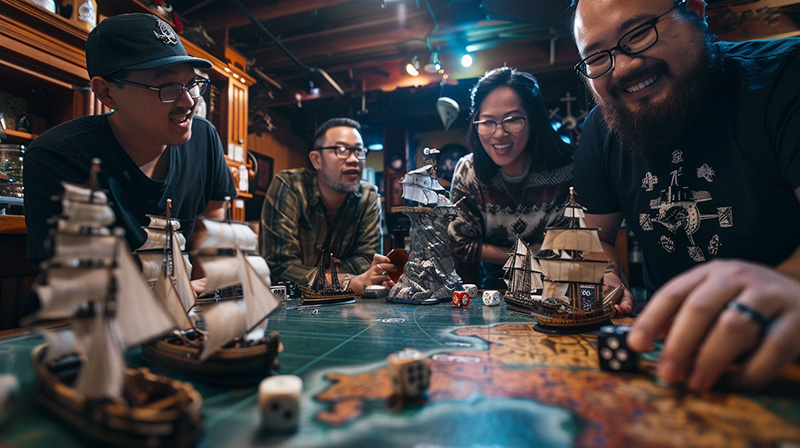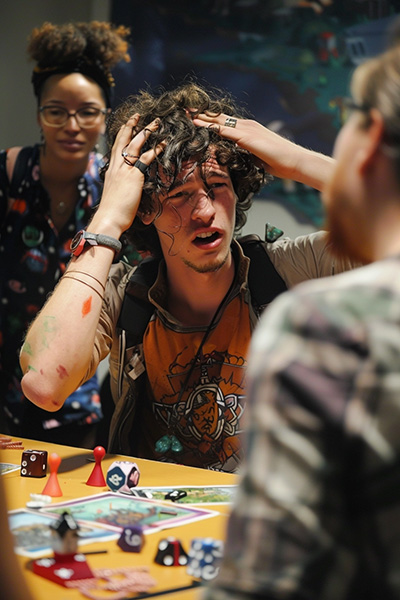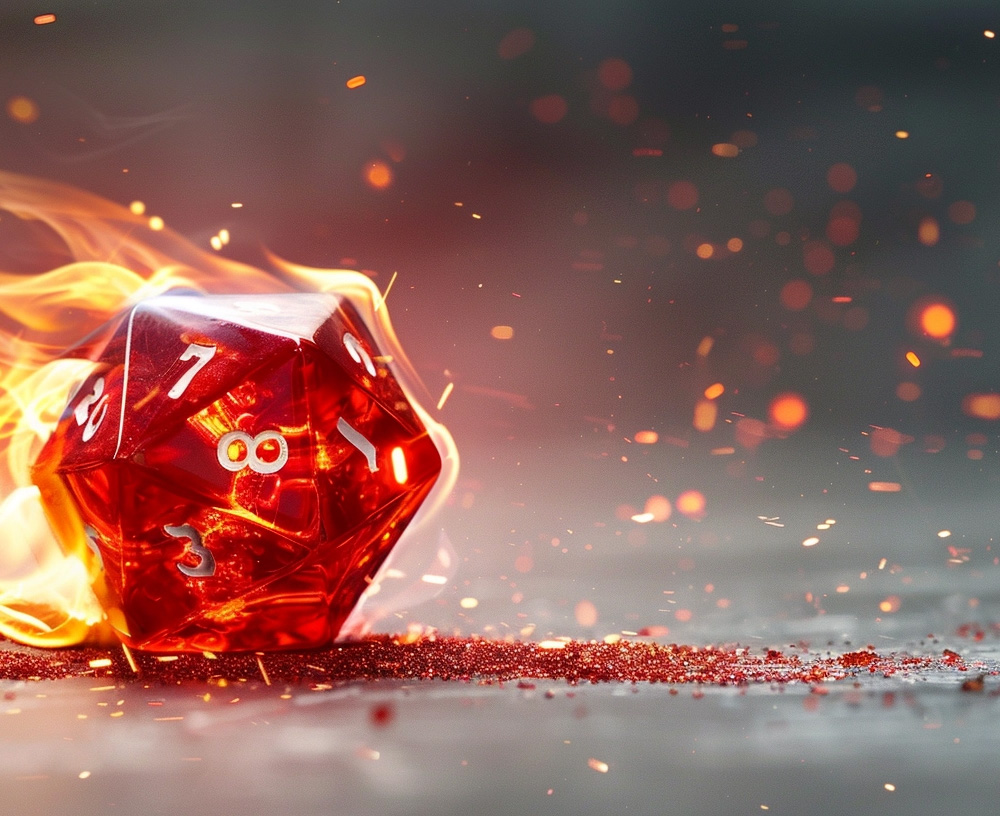There are a lot of things that are great about virtual tabletop gaming. Roll20 has changed the way we get to visualize our games and with the introduction of AI artwork, one could make the argument that a virtual tabletop might be even more immersive than in-person. Obviously nothing can beat a tabletop of hand-painted minis on a tactile map with mountains and trees but let’s be real, who can afford to do THAT?
Pause as the author pictures a great tabletop ocean map with water and ships as far as the eye can see.

Where was I? Yes, the benefits of the virtual tabletop. You can combine that with great map builders and beautifully conceived, AI-generated imagery to create an amazing visual experience. Players can easily customize and control their tokens, there is no worry about scale, no worry about needing to find a table big enough. They’ve even done some amazing things with the creation of delightfully designed virtual dice.
But there is one thing that I struggle with in a virtual environment: combat.

I already find combat in person tedious. How many times have you been in a situation where you know, every round, you’re going to attack the enemy closest to you. You roll your dice, add your modifiers and boom, you’re done. The next person goes, the warlock we’ll say, and it’s the same thing but with Eldritch blast. But, there comes a moment when someone who has been so focused on what they want to do that they haven’t paid attention to what’s going on. “Is that enemy close enough for me to hit? Can I cast Flaming Sphere? How far can I move?”
It’s hard to keep track of all the things one can do during their phase of combat, but it’s a struggle for those who pay attention and prepare while others need the additional help. In-person, this can be handled while the rest of the group can have a fun conversation, plan what else to do during the next round of combat, or grab a snack and just catch up. It’s easier to stay engaged in every round of combat in-person. A player can ask questions about what they want to without disrupting current play. Virtually, only two people can really have a conversation at any given time. So, if you’re like me and have ADHD, you may fall in the trap of zoning out. You may lose track of what’s going on. So to address this understandable challenge, I created a mechanic called “Support Dice” in my most recent campaign.
Player Support Dice
Can be earned by strong, SUCCINCT roleplay during combat. When a player earns a “Support Dice,” they may use the dice to assist one of their party members at any point during the round of combat. It can be used in two ways:
- You may add a D20 to your party member’s attack roll.
- You may add a D20 to your party member’s damage roll.
To use the dice, pick a point in combat when another party member is attempting an attack or spell and roleplay how you will be assisting their actions. Example:
The rogue is attacking with their crossbow. I will use shape water and splash water in the enemy’s eyes, distracting them so that it makes it easier to hit.
Or:
The paladin is swinging his hammer to strike the enemy. I will shape earth and create a wall behind the enemy so they take additional damage.
The mechanic was created to encourage two things: paying more attention and more combat roleplay opportunities.
I tried this out with my Batteries not Included game, and a couple of people used it towards the end of the game. They focused on helping their party members succeed when they had previously failed which was not an initial use I had considered. But I like my players to be successful. The creative throwing of Mayor Fluffy Bunny to assist made everything worthwhile.

Beyond that, the mechanic was not used much which I believe is my own fault. I limited the number of combat encounters, focusing more on skill check activities and puzzle solving. I also made the combat encounters a bit too squishy for the level of party members that were participating in combat during my game. Who would have thought, the GM who doesn’t love combat creates shorter combat scenarios!
I’m looking forward to trying this mechanic in other games I coordinate. I know many individuals that struggle with focus during combat, whether they also have ADHD or not. I’m hoping that this might encourage individuals to be more thoughtful about both keeping track of the actions of other members of their part as well as preparing how they are going to take their actions in combat.
